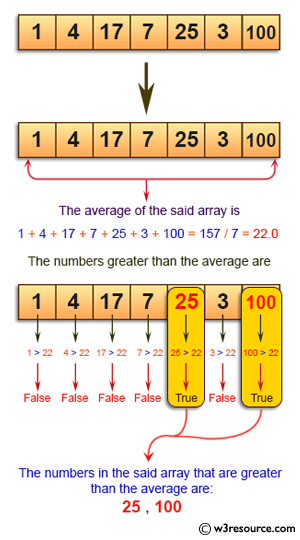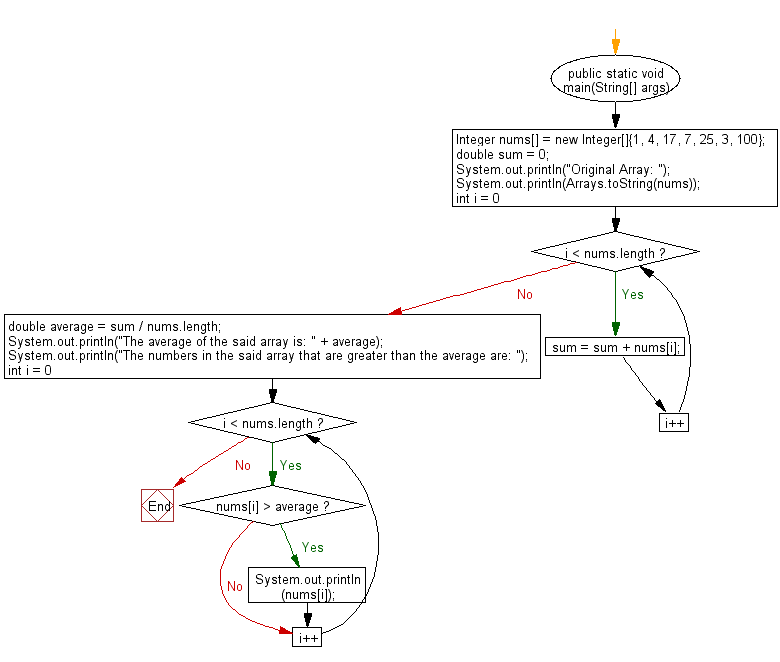Java: Find the numbers greater than the average of the numbers of a specified array
Numbers Greater Than Average
Write a Java program that finds numbers greater than the average of an array.
Visual Presentation:

Sample Solution:
Java Code:
import java.util.*;
public class Main {
public static void main(String[] args) {
// Initializing an array of integers
Integer nums[] = new Integer[]{1, 4, 17, 7, 25, 3, 100};
double sum = 0; // Initializing the sum variable
// Displaying the original array
System.out.println("Original Array: ");
System.out.println(Arrays.toString(nums));
// Calculating the sum of elements in the array
for(int i = 0; i < nums.length; i++) {
sum = sum + nums[i];
}
// Calculating the average of the elements in the array
double average = (double) sum / nums.length;
// Displaying the average of the array
System.out.println("The average of the said array is: " + average);
System.out.println("The numbers in the said array that are greater than the average are: ");
// Printing numbers greater than the average in the array
for(int i = 0; i < nums.length; i++) {
if(nums[i] > average) {
System.out.println(nums[i]);
}
}
}
}
Sample Output:
Original Array: [1, 4, 17, 7, 25, 3, 100] The average of the said array is: 22.428571428571427 The numbers in the said array that are greater than the average are: 25 100
Flowchart:

For more Practice: Solve these Related Problems:
- Write a Java program to find all numbers in an array that are less than the average value.
- Write a Java program to count the number of elements that exceed the average of an array.
- Write a Java program to compute the absolute deviation of each array element from the average.
- Write a Java program to partition an array into two arrays: one with numbers above the average and one with numbers below it.
Go to:
PREV : Kth Smallest and Largest.
NEXT : Binary Zeros Count.
Java Code Editor:
Contribute your code and comments through Disqus.
What is the difficulty level of this exercise?
Test your Programming skills with w3resource's quiz.
